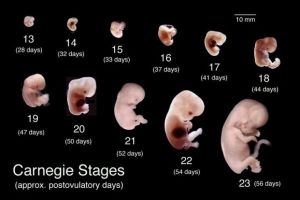Fathers
Since yesterday was #Fathersday, I felt compelled to ramble briefly about the fact that God is our Father.
On one occasion, when I was 2, I told my parents that I hoped that they wouldn’t have another child, since I liked being the eldest, and was concerned that the next sibling (after Katie) might be older than me.
 When I was younger than that, apparently I used to toddle around chanting that “Grace does not put coal in the video[player]. I did, of course, put coal in the video player one day.
When I was younger than that, apparently I used to toddle around chanting that “Grace does not put coal in the video[player]. I did, of course, put coal in the video player one day.As a child, I frequently felt frustrated that my parents didn’t buy me as many toys as I saw other kids receiving, and I wished that we’d have more trips to McDonalds. And why did I have to have my hair combed when it hurt? Why did I have to do homework?
 I, whilst growing up couldn’t understand why my parents didn’t give me everything that I wanted, or stop everything that I didn’t like. Now I’m grateful; if I’d been given all the toys I wanted, I’ have been spoiled, and unable to appreciate things, or to be sensible with money now; if I’d had fast food whenever I wanted it, I’d struggle not to continue eating tonnes of junk; if I’d not had my hair combed, it would have been matted and hosting headlice; if I’d not done homework I ultimately wouldn’t have GCSE and Alevel grades that are vital for work. As adults we understand better why we can’t have everything as we’d like it, but we still become frustrated with God for not resolving life’s problems immediately. In fact, God still has reasons for allowing struggles that our beyond our comprehension right now, just as a child can’t comprehend genuine and loving reasons (for not making life perfect) of their father.
I, whilst growing up couldn’t understand why my parents didn’t give me everything that I wanted, or stop everything that I didn’t like. Now I’m grateful; if I’d been given all the toys I wanted, I’ have been spoiled, and unable to appreciate things, or to be sensible with money now; if I’d had fast food whenever I wanted it, I’d struggle not to continue eating tonnes of junk; if I’d not had my hair combed, it would have been matted and hosting headlice; if I’d not done homework I ultimately wouldn’t have GCSE and Alevel grades that are vital for work. As adults we understand better why we can’t have everything as we’d like it, but we still become frustrated with God for not resolving life’s problems immediately. In fact, God still has reasons for allowing struggles that our beyond our comprehension right now, just as a child can’t comprehend genuine and loving reasons (for not making life perfect) of their father.
 I, as a child, lacked self control and my greed or curiosity could overrule my best intentions. I’m better able to follow principles now, but still do somethings I know I shouldn’t (or don’t do things I know I should) and need God’s forgiveness and guidance as a child does from their father.
I, as a child, lacked self control and my greed or curiosity could overrule my best intentions. I’m better able to follow principles now, but still do somethings I know I shouldn’t (or don’t do things I know I should) and need God’s forgiveness and guidance as a child does from their father.But unlike our human fathers, God is without the flaws of being human – He has ultimate compassion and wisdom.
I’m personally unusually privileged, however, to have an exceptionally brilliant human father too. Few people are lucky enough to have a dad who’s so hard working, entertaining and caring. I can’t thank Andrew enough.
My comments all over Facebook regarding the immigration situation prompted someone (who I don’t know) to message me; they referenced this^ post, and attempted to make an analogy out of my analogy. They argued that, since I’d been worried about another sibling coming into my family, I should support Americans who oppose migrants into their country. Whilst it might be wrong of me to mention her private message here, I feel compelled to do so in case anyone else has misunderstood my post^
To clarify: I’d worried about another family member because I thought that the next sibling might be older than me, and I liked being the eldest – not because, as the message suggested, I was worried about limited resources (of my family, as the US people might be of their nation). Crucially I was wrong – I didn’t understand, as a toddler who’d not yet understood time and age, that it was impossible that any future siblings would be older than me. My feelings at that point can’t be analogised to legitimise worry about immigration – my feelings were wrong. Similarly, to fear immigration so much as many do is wrong; those who immigrate don’t reduce net resources; most work very hard, hence evidence suggesting that asylum seekers in fact has a positive impact on the nations to which they move https://motherboard.vice.com/en_us/article/ywejb5/30-years-of-data-shows-asylum-seekers-are-not-an-economic-burden?utm_source=vicefbuk
Years later, Frances and Andrew sat me and Katie down and told us that there was indeed to be another family member (though I was already suspicious of it, having seen my parents showing my grandparents showing blurry black and white images to my grandparents – as a 6 year old, I didn’t know about ultrasound scans, but knew I’d seen images like this in my own baby scrap book). And I’m obviously, extremely glad that Joanna did arrive, and can't imagine our family without her. Were American people to face fears about new people, they wouldn’t even have the arguments about dirty dishes I did.
Tiny Humans
"Woe to those who call evil good and good evil" Isaiah 5:20 It’s indisputable that our society’s dogma as to what is good, and what is evil, have changed dramatically. But perhaps the most acute turn has been on the issue of abortion. Babies – in spite of mess, noise and cost – have long been a wonder in our culture, and most others also. Communities have long celebrated births and cooed over infants; whilst parents endure weariness but are simultaneously uniquely enamoured with their child, experiencing the epitome of affectionate attachment, which can manifest as lionhearted defence of their offspring. Advances in medical technology now enable parents to meet their children less than 2 months into pregnacyYet now, paradoxically, our society’s standard opinion is that the opportunity to kill such offspring just a few months earlier. Abortion has not simply been legitimised, it’s now deemed a vital human right. Opposition to abortion is now deemed evil and immoral.
It’s indisputable that our society’s dogma as to what is good, and what is evil, have changed dramatically. But perhaps the most acute turn has been on the issue of abortion. Babies – in spite of mess, noise and cost – have long been a wonder in our culture, and most others also. Communities have long celebrated births and cooed over infants; whilst parents endure weariness but are simultaneously uniquely enamoured with their child, experiencing the epitome of affectionate attachment, which can manifest as lionhearted defence of their offspring. Advances in medical technology now enable parents to meet their children less than 2 months into pregnacyYet now, paradoxically, our society’s standard opinion is that the opportunity to kill such offspring just a few months earlier. Abortion has not simply been legitimised, it’s now deemed a vital human right. Opposition to abortion is now deemed evil and immoral.Because the victim of an abortion is unseen and unheard, most of our contempories don’t feel – or perhaps deny – that the victim is a human, and that the procedure is killing. Again and again, comments that I encounter state dogmatically these denials of biology. I, and other pro-lifers, feel instinctively angry about abortion, as anyone sane would about killing. But we are a minority; 50 years after abortion was legalised, the predominant – or at least, loudest – opinion, is that abortion is an entirely legitimate medical decision. 70% of the British public, according to the 2016 British Social Attitudes survey, believe that abortion should be allowed simply because the mother doesn’t want the child.
Contrarily, those of us seeking to live for God are filled with subconscious desire to adhere to His commands, disabling us from dismissing the reality of what abortion is. Our hearts are being moulded by God’s influence; His commands to refrain from lying and from killing make abortion repulsive to us.
Several years ago, one of innumerable antagonistic replies to one of my comments on a public Facebook post about abortion referenced The Handmaid’s Tale, which I’d not heard of at the time. Of course, I immediately read Wikipedia’s synopsis. I was exasperated, though unsurprised, to read that the novel imagines a near future in which “Christians” take over the US and impose a cruel totalitarianism, in which the few women who remain fertile (following a fertility crisis resulting from Global pollution) are enslaved to produce offspring for the elite. The implication is that to deny abortion access is comparable to state enforced servitude making women into disenfranchised walking wombs; and that this is the will of Christians.
Margaret Atwood is of course entitled to write what she wishes – but it’s of grave concern that some non Christians consider this a credible and informative illustration. Of course, since then, the book has been brought to small screens worldwide, in a drama series that’s won awards. I was astonished to see it referenced several times in a recent House of Commons debate on abortion; how have we reached a point where fiction is used as a political argument?
In the first episode of the series, the protagonist is raped by her master whilst he reads from Genesis about Abraham’s impregnation of Bilhah. In a culture where the Bible is almost absent, scenes like this have dangerous impact. Yet reproductive “rights” have been inseparable from Christianity in the public mind-set since long before The Handmaid’s Tale. Few of the many comments that I make regarding abortion on Facebook go without replies attacking “religion”, though my comments never mention it at all.
 There are certainly Pro-Life campaigners who quote Bible verses to argue against abortion (Psalm 139 in particular), but most campaigns focus on highlighting the supressed realities of what the foetus is; what abortion entails; and how a mother can be harmed by it. I’m well aware that the Bible is meaningless –or worse- to non-Christians, so always make only secular points. It’s not “just a clump of cells” I point out. The NHS’s own website describes the foetus as “fully formed” at 12 weeks, and some evidence suggests that it feels pain by 8 weeks. Infertile couples desperate for babies would joyously provide loving homes for the accidentally conceived babies who are unwanted by their birth mothers. Abortion carries considerable risks to patients, with 466 ambulances called to abortion clinics last year in London alone, and literally immeasurable psychological harm done.
There are certainly Pro-Life campaigners who quote Bible verses to argue against abortion (Psalm 139 in particular), but most campaigns focus on highlighting the supressed realities of what the foetus is; what abortion entails; and how a mother can be harmed by it. I’m well aware that the Bible is meaningless –or worse- to non-Christians, so always make only secular points. It’s not “just a clump of cells” I point out. The NHS’s own website describes the foetus as “fully formed” at 12 weeks, and some evidence suggests that it feels pain by 8 weeks. Infertile couples desperate for babies would joyously provide loving homes for the accidentally conceived babies who are unwanted by their birth mothers. Abortion carries considerable risks to patients, with 466 ambulances called to abortion clinics last year in London alone, and literally immeasurable psychological harm done.Consistently for these points, I‘m rebuked for being religious, though I’ve not mentioned God, Christianity, Jesus, the Bible or the Church at all. It’s an utter logical fallacy, betraying either a lack of counter arguments, dogmatic hostility to any Christianity so much that it claws at the back of their minds – or both.
It’s somewhat circular – opposition to abortion is dismissed as “religious”; Christianity is rejected for supposedly oppressing women. In both cases, the presumption is made that overturning of existing order for the sake of hedonistic liberalism is what’s best. Christianity is presumed negative since it implores us to abstain from certain vices; the pro-life position is presumed negative because it entails the physical cost of completing pregnancy. Both presumptions overlook the reality that we don’t fully grasp what’s best for us, or fully want what’s best for others.
Fundamentally, this is a religious issue. Our culture worships sex – as Mark Driscoll observes, the human body is the epitome of God’s creative genius, consequently when people reject Him, they worship the human body and become obsessed with sex. Abortions then, are a necessary clean up after the worship service. Lord Wilshire this week referred to Love Island as immoral – but his use the word, to refer to sexual immorality, is obsolete amongst younger adults. There is no such thing as sexual immorality in the minds of the generation raised on post sexual revolution media; rather, it is immoral to “judge” or “shame” any demonstration of sexual liberation. The new ethic, is that we ought to be “sex positive”, having a “healthy” attitude to sex and sex life. Of course, what is meant by healthy is in fact physiologically and psychologically unhealthy – with the behemoth of sexual infections even making the national BBC news this month.
The crux of so many issues is Western society’s changed attitudes to God. “God Save the Queen”? Now her subjects kill His creations. “In God We Trust”? Not particularly now. It’s not only practice and belief that have almost disappeared, it was previously commonly accepted that God knows better than we do, and that He holds our destinies.
Complete bodily autonomy is a non-negotiable canon of postmodernism. Thus I’m never-endingly berated for “forcing” women to endure completion of pregnancy when I demonstrate opposition to abortion. That I’m only typing on Facebook is irrelevant; merely to practice freedom of speech is deemed abusive. That the pregnancy is not a result of any “force” (save for the <1% of cases resulting from rape), but rather of choice to participate in the biological process that exists to bring about pregnancy, is irrelevant; the act has been redefined as a fundamental component of life and identity, divorced from reproduction. That the autonomy of the human in the womb is entirely incinerated is irrelevant; the foetus is deemed to be only “a cluster of cells”, not a living human, despite immediate access to scores of websites detailing human foetal development. Not that I’m bemoaning being criticised – I’m frustrated by the deeper implications of the attitudes demonstrated.
I’m frustrated because these debates reliably lead to abortion supporters chastising Christianity – how will these individuals ever be open to the reasoning for Christianity if they harbour such animosity to it, as well as such defiance of rational discussion?
 Presumably, some of those who assume a link with Christianity have in mind the Christian – almost always specifically Catholic – vigils that are held outside abortion clinics. Some vigil participants hold rosaries; some have plaquards showing the Virgin Mary; some pray conspicuously. Such fury burns against these vigils that they have been legislated against by my local council this year. A “Public Space Protection Order” has been instigated at the Ealing Marie Stopes abortion clinic, such that even praying visibly within 100 metres of the clinic is now illegal. It’s an ominous laceration of foundational freedoms; but it should serve as insightful guidance for us. Whilst we can expect to be hated as Christians, it’s imperative that we don’t cultivate conflict in secondary matters. Abortion is of enormous importance – but it’s literally not Gospel. Of paramount importance is that we continually strive to point people towards Christ; if we entangle ourselves in heated conflict over other issues, there’s a very real risk of not only losing limited time, but of fuelling resentment of Christianity.
Presumably, some of those who assume a link with Christianity have in mind the Christian – almost always specifically Catholic – vigils that are held outside abortion clinics. Some vigil participants hold rosaries; some have plaquards showing the Virgin Mary; some pray conspicuously. Such fury burns against these vigils that they have been legislated against by my local council this year. A “Public Space Protection Order” has been instigated at the Ealing Marie Stopes abortion clinic, such that even praying visibly within 100 metres of the clinic is now illegal. It’s an ominous laceration of foundational freedoms; but it should serve as insightful guidance for us. Whilst we can expect to be hated as Christians, it’s imperative that we don’t cultivate conflict in secondary matters. Abortion is of enormous importance – but it’s literally not Gospel. Of paramount importance is that we continually strive to point people towards Christ; if we entangle ourselves in heated conflict over other issues, there’s a very real risk of not only losing limited time, but of fuelling resentment of Christianity.In my most recent debate over abortion online, one archetypal comment was “And your imaginary sky daddy doesn’t exist and that book is a vile pile of hatred and division.” (this was immediately followed by jibes over the pagan history of Easter and Christmas, as though the first millennia’s take over of existing festivals somehow proved that Jesus was fictional). I’m well acquainted with sky daddy swipes; there’s no injury to my own feelings; the blasphemy stings but God will handle it. The tragedy here is for her – labelling God as an imaginary sky daddy betrays literal ignorance that’s rife in our culture now. My aim is to prod her stubborn blind faith that God is fictional, and pray that though our conversation might, even slightly, thaw her enmity to God – though I know that it’s highly unlikely that my ability as an apologist is sufficient. I summarised the argument that most opened my own mind to belief (fine tuning), explained that there’s far more reasoning supporting Christianity to explore, and had no further replies from her. I can only dream that she might think on this – that there is reasoning supporting God - one day; battling over abortion is trivial by comparison.
So, whilst it’s an illogical divergence for abortion supporters to initiate attacks on Christianity, shackled to the assumption that faith is the singular driving factor of abortion critics, it in fact provides us a rare opportunity to nudge them, ever so slightly, towards reconsidering their rejection of God. Where we see sensitivity over the issue of abortion to be a contributing factor in an individual’s resentment of Christianity, it’s imperative that we strive to emulate Christ, refr
aining from using judgemental language and relentlessly redirecting discussions to the Gospel.
(snippets from a post on my timeline):
I've been stunned by how many people genuinely believe that the foetus is "just a clump of cells", that it's not human, and not a living thing.
The extreme, rare incidences of fatal abnormalities are repeatedly presumed to justify law changes that will lead to the death of tens of thousands of healthy unborn humans.
Photos of foetuses are deemed offensive - whilst scans of foetuses of the same ages are celebrated when the parents want them.
Rape is regularly used as an argument in support of abortion, though Planned Parenthood's own stats say that rape is only the cause of 1% of pregnancies that women want to abort (it's reasonable to suspect that the real figure would be less than 1% here, and without the bias of PP).
Has it not occurred to us that women are more likely to have unsafe sex when abortion is readily available?
Are abortion supporters unaware that women are often left emotionally scarred after having abortions – and that some have died in legal supposedly "safe" abortion procedures? https://is.gd/8AHSzb
There are infertile couples desperate for babies - why are so many people in support of it being possible to suction them to pieces?
We don't all agree on where life begins. As Jacob Reese Mogg put it a few days ago, if you believe that life begins at conception, then it is difficult to ever see a circumstance where abortion can ever be right.
You really think it's not alive at 12 weeks? Which textbooks are reading? I DESPISE Moggie's opposition to foreign aid, and I won't argue about eggs moments after conception - but this law change will allow abortion for any reason up to 12 weeks, when the foetus has its organs, brain and nervous system. Even Planned Parenthood's original materials called abortion killing.
Let's rephrase the question: should a woman be forced to give birth to a child she doesn't want, by the state?...
 no one is forcing anyone, it's biology. Contraceptive methods can prevent nearly all unintended pregnancies - if one still occurs, the baby could be loved by one of the many infertile couples desperate for a baby. I agree that contraception and reasonable sex ed should be freely available. But ultimately, sex isn't at all necessary to enjoy life - commercial culture that profits from conning us into thinking that we need sex are the root of so much suffering. And whilst you argue that abortions are happening anyway so it's better to legalise abortion so that they're safer, not providing abortions will make some people think twice before having unsafe sex. The rate of abortions in the UK has been many times greater since it was made available than had been forecast - people are less cautious in their sex lives.
no one is forcing anyone, it's biology. Contraceptive methods can prevent nearly all unintended pregnancies - if one still occurs, the baby could be loved by one of the many infertile couples desperate for a baby. I agree that contraception and reasonable sex ed should be freely available. But ultimately, sex isn't at all necessary to enjoy life - commercial culture that profits from conning us into thinking that we need sex are the root of so much suffering. And whilst you argue that abortions are happening anyway so it's better to legalise abortion so that they're safer, not providing abortions will make some people think twice before having unsafe sex. The rate of abortions in the UK has been many times greater since it was made available than had been forecast - people are less cautious in their sex lives.You’re a pro forced brother that does not care about the living breathing people. All you spout is bullshit about your superstitious beliefs and myths. No one wants your Christian sharia
To call opposition to killing unborn humans "Christian Sharia" is hilariously illogical and very offensive to those who actually suffer because of Sharia law. Can you provide any more justification as to why imposing structures of dominance to reduce natural rights are comparable to defending natural rights (by opposing the death of the unborn)? Or do you just hate Christianity? If so, please tell me more, that's much more important than this debate.
Since there's controversy amongst experts about when pain can be felt, how is it legitimate to attack someone who's made an absolute statement, that pain is felt, when you've also made an absolute statement (that pain isn't felt)? As Kevin Parish pointed out, we should err on the side of caution - would argue that we're morally obliged to, given that the suffering is of someone else who has made no choice and can't speak for themselves.
Paralell Societies
You can find the details of this event on The Washington Post here (requires subscription), and on the BBC website here.Online, I’ve seen innumerable comments that indiscriminately lump together all “religions”. Jihadi terrorism is, to some, evidence against Christianity, because they generalise all who believe in God as a homogeneous subspecies of delusionals. Many far right figures espouse credentials as defenders of Christianity; but what when those keen to crush Christianity take advantage of the intolerance that far right governments are instituting?
By normalising encroachment onto religious freedoms, the Austrian government is paving the way for public acceptance of Church closures when, inevitably, atheist politicians take positions of power.
Whilst plenty of Westerners are concerned about Islam, it’s also widely believed that equal treatment is obligatory in civilised society. As public opposition to state control of worship places is neutralised by moves such as this action by the Austrian government, keen secularists will more easily be able to suppress Christianity.
Even without this threat, the move to close mosques is concerning. We take for granted that we can participate in gatherings of our choosing; it seems illogical that one group of human beings could ban another group of human beings from congregating and practising what they believe is communication with the creator of all human beings.
Meanwhile, various European governments have legislated to restrict Muslim head coverings. It can certainly be argued that head coverings pose a security risk — but evidence of this is lacking.
Whilst I am generally wary of presuming slippery slopes, and am frustrated by the ubiquity of the trope of calling others Nazis; it is surely legitimate to be wary of figures of power specifically disallowing “parallel societies”. It’s entirely appropriate that governments act to address the evident threat of Islamic terrorism — but the Austrian government intends to wholly dismantle institutions of worship, and to deport faith leaders even in the absence of proof of dangerous teachings by the individuals. Does this not suggest a sinister scheme to modify the minds of the masses? Should we be wary of moves towards recurrence of what can be observed in the Communist far East?
Our culture’s aversion to state interference is evidenced by “Nanny state” being frequently employed to denounce government policies designed to curb injurious habits. A nanny plays a vital role in protecting the children assigned to their care, and knows far better than the children do what’s best for them; similarly, government impositions against vices such as alcohol, cigarettes and junk food will benefit the public. Yet much of media and public decry such interference, instinctively defiant of restrictions. Would these complainants protest were places of worship to be closed by our government as in Austria?
There are remonstrations too when “free speech” is seen to be encroached upon — but freedom to speak to God in purpose-built premises could well be obstructed with indifference from our atheist society.
Prohibition of “parallel societies” is conspicuous throughout the West, evidenced by the sudden proliferation in legal obstructions to Christian social standards. Business owners are being sued for holding to Biblical guidelines on sexuality — merely refraining from participating in gay weddings is landing Christian service providers in crippling legal battles. Recently, the Christian owner of Masterpiece bakery in the US won one such case; but that his not making a wedding cake would be taken to the Supreme court is disturbing. Much worse though, is that such conflicts are one of the most apparent Christianity-related matters in the media; to more and more of the public, Christianity is becoming synonymous with conflict over sexual ethics.
Ultimately, we believe that there are objective truths about ultimate questions; and that each person should seek to discern what is true. We want people to consciously examine different worldviews — and obviously hope that their hearts are open to Christ. But relativism is rife today — why (many might ask) should our society care about restrictions on belief if there’s no ultimate truth to believe in anyway? And why should society care about worshipping God when surrounded by so many other objects of worship? Most Westerners place far more value on spending, sports, and sex than on “religion”. Freedom to determine and practise personal beliefs about fundamental realities — whether there is a God; what guidelines for life we should seek to follow; if and how we can engage with a supernatural being — seems now expendable to the Western mentality.
Yet we know, as Christians, that God will have the final word. Islam recounts Muhammed winning territory and taking dominion of other tribes. Now, in Austria and other European countries, Islam is instead being suppressed. But the New Testament foresees oppression of Christianity — and assures us that God will have victory. It’s wrong for governments to ban parallel societies; but it cannot steal our hearts away from Christ — Christ who entered and intersected societies; Christ who was crushed for serving God; and Christ who won and overcame His adversaries.
St. Paul makes clear that we must not separate ourselves from society: “To the Jews I became as a Jew, in order to win Jews. To those under the law I became as one under the law (though not being myself under the law) that I might win those under the law. To those outside the law I became as one outside the law (not being outside the law of God but under the law of Christ) that I might win those outside the law. To the weak I became weak, that I might win the weak. I have become all things to all people, that by all means I might save some.” (1 Corinthians 9:20-22)
State interference in religion is a needed reminder to strive onwards in the Great Commission; let’s show society that Christianity is not something to shut down.
“Who shall separate us from the love of Christ? Shall tribulation, or distress, or persecution, or famine, or nakedness, or danger, or sword?”
Romans 8:35[1]
“Now those who were scattered because of the persecution that arose over Stephen travelled as far as Phoenicia and Cyprus and Antioch, speaking the word to no one except Jews.”
Acts 11:19[2]
“Rejoice in that day, and leap for joy, for behold, your reward is great in heaven; for so their fathers did to the prophets.”P.S. – You may like to sign this current petition regarding Religious Freedoms — petitions are a small, but sometimes excitingly efficacious way that we can impact political powers — http://ourreligiousfreedom.org/
Luke 6:23[3]
“Religious freedoms in the UK have taken centuries to build, but intolerance, complacency and uniformity are slowly eroding them away. It’s easy to sit back and ignore the damage because, like erosion, it’s not always immediately visible on the surface. But look a little closer and you can begin to see the cracks. When nurses are being sacked for wearing crosses or praying, and students are being kicked off their course for their beliefs, you have to ask yourself how safe these freedoms are. At what point do you act? We are not looking for a quick fix. Erosion needs prevention and that prevention is a new law: a new law, once and for all, to safeguard, all aspects of freedom of religion or belief before we lose them, along with freedom of speech.”[4]
Moggie
In the BBC’s The Daily Politics broadcast on 22 May, presenter Jo Coburn asked the show’s guest for the day Jacob Rees-Mogg MP whether his well-known religious beliefs were “a problem.” Grace Dalton asks whether baiting Christian politicians about their beliefs on sexuality is now the “new normal.”Marvellously Marmite Moggie was — again — on the BBC’s Daily Politics last week. The public love him or hate him, and so the media gleefully spreads him across our screens with the certainty of sparking interest. Jacob Rees-Mogg is deemed amusing for his personification of picture book poshness. Earlier this year, the Beano demanded that he cease and desist from impersonating Walter the Softy, enemy of the ever popular Dennis the Menace.
But his opinions render him an enigma to be examined endlessly. Examined because he is, in fact, a peculiar species — he’s a Catholic.
 There are a smattering of self described Christians in Westminster, but mainstream media takes an interest almost exclusively when an opportunity occurs to feign superiority by looking down on them. On the Daily Politics last week, Mogg was first mocked for his persona, like a misfit child at school. Host Jo Coburn proceeded audaciously to demand that he declare his views on fellow parlimentarians — never mind the absurd foolishness of publicly taking sides between one’s colleagues. But discussion of competency was merely a segue — Coburn’s purpose was clearly to grill Mogg on his feelings about same sex marriage.
There are a smattering of self described Christians in Westminster, but mainstream media takes an interest almost exclusively when an opportunity occurs to feign superiority by looking down on them. On the Daily Politics last week, Mogg was first mocked for his persona, like a misfit child at school. Host Jo Coburn proceeded audaciously to demand that he declare his views on fellow parlimentarians — never mind the absurd foolishness of publicly taking sides between one’s colleagues. But discussion of competency was merely a segue — Coburn’s purpose was clearly to grill Mogg on his feelings about same sex marriage.“I mean, let’s just sort of put that to one side for the moment, and look at Ruth Davidson whom we talked about at the beginning of the programme. [...] She’s also somebody who is gay, engaged to be married, and pregnant. Do you have a problem with any of that?”
Referring to leader of the Scottish Conservatives Ruth Davidson’s sexuality and pregnancy, Coburn asked, “Do you have a problem with any of that?”
“None of that at all,” Mogg replied, “it’s up to her how to lead her life.
“It’s a huge joy... it’s very exciting when people are bringing new life into the world.”
Mogg keenly complimented Davidson’s ability as a politician, endeavouring to separate views about Ruth Davidson as a person from views about the definition of marriage — but this is not an option in society today. Fundamental to the modern mindset is the doctrine that a person’s sexuality is a defining aspect of who they are. Coburn ignored Mogg’s compliments of Davidson’s work. Is it a problem, she asked, “that you hold those views about some of your colleagues?” presuming that his view of Ruth Davidson is determined by who she sleeps with. Throughout current culture, labels are attached to people regarding a part of their lives that doesn’t impact the public at all. Ruth Davidson’s sexual orientation is no part of the public service she undertakes — but it’s this that Coburn seeks Mogg’s statements on. She presses hard to elicit a controversial admission, repeatedly demanding that he fracture his relationship with his colleagues.
 According to NatCen’s British Social Attitudes data, just 20 years ago, only 25% of the British public affirmed acceptance of same-sex relationships, after doubling in the decade prior. The figure stands today at 65%. Given that one third of the public is in agreement with Mogg on this matter, and given that Britain’s view is evidently unstable, surely it’s wrong that Coburn presumes with such certainty that support of gay marriage is objectively right and Mogg is objectively wrong? Within mere decades, Western morality has mutated almost beyond recognition. Though plenty of people were not in love with God, the Bible was accepted as the foundation of morality even by many who didn’t follow it. Whether something was right or wrong could often be agreed about be consulting Biblical teaching, though it was certainly wilfully misinterpreted at times. Now, we have no unifying standard for determining ethical quandaries. Consequently, disagreements such as those discussed in this interview, create a stalemate, in turn a road block to mutual progress on other matters.
According to NatCen’s British Social Attitudes data, just 20 years ago, only 25% of the British public affirmed acceptance of same-sex relationships, after doubling in the decade prior. The figure stands today at 65%. Given that one third of the public is in agreement with Mogg on this matter, and given that Britain’s view is evidently unstable, surely it’s wrong that Coburn presumes with such certainty that support of gay marriage is objectively right and Mogg is objectively wrong? Within mere decades, Western morality has mutated almost beyond recognition. Though plenty of people were not in love with God, the Bible was accepted as the foundation of morality even by many who didn’t follow it. Whether something was right or wrong could often be agreed about be consulting Biblical teaching, though it was certainly wilfully misinterpreted at times. Now, we have no unifying standard for determining ethical quandaries. Consequently, disagreements such as those discussed in this interview, create a stalemate, in turn a road block to mutual progress on other matters.Notably, Coburn uses negative language — Mogg is “against gay marriage” and “anti abortion” — those who hold these views describe themselves as proponents of traditional marriage and pro-life. Notable too, is that other politcians are not similarly interrogated.
Jeremy Corbyn, for example (who I more often agree with than I do Jacob Rees-Mogg) is against dairy products and anti meat, but his veganism is never what he’s interviewed about.
Crucially, Mogg does not put his energies into issues surrounding gay marriage and abortion. He campaigns against the EU, his efforts and influence are in matters relating to legislative bodies and economics, not proposing bills and raising awareness of these morals questions. But sex sells — the devastating truth that Coburn must bear is that absolute politics becomes dull eventually — at least to much of the viewing public, so she veers into topics that her guest in fact chooses not to impact.
 Later in the programme (36’50”—45’50”), deputy leader of the Liberal Democrats Jo Swinson MP rightly addresses Mogg’s seeming lack of concern for children disadvantaged by poverty or as refugees. Coburn cuts the conversation to give Swinson the last word on the matter, and I’m left wondering how Mogg would respond to Swinson’s valid concerns, and how many of the public will be left with the impression of Swinson as the hero against a villainous Mogg.
Later in the programme (36’50”—45’50”), deputy leader of the Liberal Democrats Jo Swinson MP rightly addresses Mogg’s seeming lack of concern for children disadvantaged by poverty or as refugees. Coburn cuts the conversation to give Swinson the last word on the matter, and I’m left wondering how Mogg would respond to Swinson’s valid concerns, and how many of the public will be left with the impression of Swinson as the hero against a villainous Mogg.Immediately afterward, Coburn turns from Mogg to the audience to begin discussion on the newly elected Lord Mayor of Sheffield. He is a Muslim who — endearingly — has reached his esteemed position in spite of the tribulation of having been a child refugee. One cannot help but wonder how he’d have answered Coburn’s earlier questions — many times I’ve heard even non-Christian members of the public comment on the media’s tendency to interrogate Christians for their stance on issues for which followers of other faiths go unquestioned.
“Have nothing to do with foolish, ignorant controversies; you know that they breed quarrels.”
2 Timothy 2:23
I, personally, am by no means a fan of Jacob Rees-Mogg; I was enraged to see him support for a campaign to cut off International Aid. And I desperately wish that, in this interview, he’d attempted to explain why he holds the views on same sex marriage and abortion that he does — that Christians follow the Bible’s teaching because God loves us beyond measure, and knows incomparably better than we do which life choices are truly best for us. But he does impressively well at rebuking Jo Coburn’s intolerance, whilst remaining perfectly calm and polite. As Christians, we too must resist attempts to drag us into futile arguments; as Paul says in 2 Timothy 2:23, “Have nothing to do with foolish, ignorant controversies; you know that they breed quarrels.” Others will continually seek to portray Christians as laughable bigots — but God’s truth will prevail if we fix our eyes on Him.
Gentlemen Don't Have to read the Bible
From 21 Books You Don’t Have to Read by GQ (April):
“The Holy Bible is rated very highly by all the people who supposedly live by it but who in actuality have not read it. Those who have read it know there are some good parts, but overall it is certainly not the finest thing that man has ever produced. It is repetitive, self-contradictory, sententious, foolish, and even at times ill-intentioned. If the thing you heard was good about the Bible was the nasty bits, then I propose Agota Kristof's The Notebook, a marvelous tale of two brothers who have to get along when things get rough. The subtlety and cruelty of this story is like that famous sword stroke (from below the boat) that plunged upward through the bowels, the lungs, and the throat and into the brain of the rower. —Jesse Ball, 'Census'[1]Will anyone decide not to read something - that they would have read otherwise - on the basis of this article? The opinions of individuals fortunate enough to have had writing published don’t void the enjoyment and enlightenment that many millions of readers have experienced via the books disparaged on this list. It’s right that no one should feel compelled to read classic literature purely for the sake of appeasing cultural expectations – but because the books that one has read doesn’t determine their moral standing nor their value, not because literary classics are useless as this GQ feature proposes.
“Those who have read [the Bible] know there are some good parts, but overall it is certainly not the finest thing that man has ever produced. It is repetitive, self-contradictory, sententious, foolish, and even at times ill-intentioned.”
Jesse Ball, ‘Census’ — GQ Magazine, April 2018
Indisputably, the Bible has had magnitudes more impact on humanity than any other book. If one wants to better understand history, better relate to other cultures, or better enjoy art and literature, the Bible is certainly the best investment of one’s reading time. The Bible permeates countless other writings; lending themes, motifs and quotations to an endless array of books, plays, songs, turns of phrase and more. Even if one disagrees with the Bible entirely, reading it will enable better comprehension of so, so much else. The Bible was the first book ever to be printed when, Johannes Gutenberg developed the first printing press in the late 1430s; and today, the Bible Society’s research has found that around 50 Bibles are sold each minute.“Ill intentioned” – I wonder how Jesse Ball presumes to know what the intentions of the Bible’s writers were? He gets money and notoriety from writing fiction – no such incentive was on offer to the Bible’s writers. The New Testament was written largely by early Christians whose lives were much endangered by their sharing about Jesus. It is often argued “religion” is fabricated to control people “the opium of the masses”; but whilst in later centuries, Church leaders had power and wealth, there was no prospect of this for the first Christians, who wrote the NT. King David – who wrote most of the Psalms – was powerful; but his writing didn’t contribute to his clout; and he willingly documented his weaknesses. Paul – who wrote much of the New Testament – was developing eminence among the early Church; but he wrote to encourage and to confess his mistakes and vulnerability. Where is the ill intention?
“It is a common quip of atheists that the Bible is fictional fairy stories. Their primary reasoning is their naturalism; they presume that supernatural events can never happen, therefore the Bible’s miraculous events render it beyond their acceptance of reality. But the reality of Christianity’s existence cannot be denied — so those who believe the Bible’s miracles didn’t happen must account for how the biggest movement in history developed.”
Nearly all of the books on the list are fiction – does Jesse presume this is true of the Bible? It is a common quip of atheists that the Bible is fictional fairy stories. Their primary reasoning is their naturalism; they presume that supernatural events can never happen, therefore the Bible’s miraculous events render it beyond their acceptance of reality. But the reality of Christianity’s existence cannot be denied – so those who believe the Bible’s miracles didn’t happen must account for how the biggest movement in history developed. The other religions are ideologies formed through their founders’ wrestling the philosophy of existence, and individuals’ reports of messages from God; Christianity is based on events.
 Jesse asserts that “the Bible is rated very highly by all the people who supposedly live by it but who in actuality have not read it” – how many such people does he base this absolute on? Indeed there are many who claim to follow the Bible yet barely read it – but there are innumerable followers who put substantial time into Bible study. Study being the crux of his misperception; Jesse states that those who have read it know that it’s not the finest thing, presuming that all who read it will share his feelings. In reality the Bible requires not only reading, but studying; it is endlessly complex, filled with poetic language and symbolism specific to the culture of the time. The narrative gives us key points of events, but it is imperative that we give consideration to the wider society and other events of the time. Biblical teaching on slavery, for example, which seems to us now to be cruel, was in fact unprecedented at the time for the mercy it commanded be given to slaves. Levitical laws which to us seem bizarre, were caring guidance from God to the Hebrew people in a setting entirely different from ours. Violent conflicts of the Old Testament record for us the results of human evil and Satan’s war on humanity. Psalms, Song of Songs and Ecclesiastes paint a vivid picture of the emotions and musings of two brilliant but flawed individuals, perfused with contempory imagery and idioms. Jesus repeatedly uses parables and metaphors, compelling His audience to deep self examination. Thus whilst Jesse concludes the Bible as simply being poor quality, the issue is in fact that he’s only skimmed the surface of the deepest text in human history; his superficial understanding overlooks fundamental contextual points.
Jesse asserts that “the Bible is rated very highly by all the people who supposedly live by it but who in actuality have not read it” – how many such people does he base this absolute on? Indeed there are many who claim to follow the Bible yet barely read it – but there are innumerable followers who put substantial time into Bible study. Study being the crux of his misperception; Jesse states that those who have read it know that it’s not the finest thing, presuming that all who read it will share his feelings. In reality the Bible requires not only reading, but studying; it is endlessly complex, filled with poetic language and symbolism specific to the culture of the time. The narrative gives us key points of events, but it is imperative that we give consideration to the wider society and other events of the time. Biblical teaching on slavery, for example, which seems to us now to be cruel, was in fact unprecedented at the time for the mercy it commanded be given to slaves. Levitical laws which to us seem bizarre, were caring guidance from God to the Hebrew people in a setting entirely different from ours. Violent conflicts of the Old Testament record for us the results of human evil and Satan’s war on humanity. Psalms, Song of Songs and Ecclesiastes paint a vivid picture of the emotions and musings of two brilliant but flawed individuals, perfused with contempory imagery and idioms. Jesus repeatedly uses parables and metaphors, compelling His audience to deep self examination. Thus whilst Jesse concludes the Bible as simply being poor quality, the issue is in fact that he’s only skimmed the surface of the deepest text in human history; his superficial understanding overlooks fundamental contextual points.“The success of entertainment like Game of Thrones shows that plenty amongst the generation who’ve grown up Biblically illiterate are in fact keen to soak in stories of war and sexual scandal; there’s plenty in the Bible to grip GQ’s demographic.”
“If the thing you heard was good about the Bible was the nasty bits” – seems an intriguing statement given the regularity with which other critics chastise the Bible’s “nasty bits”. The success of entertainment like Game of Thrones shows that plenty amongst the generation who’ve grown up Biblically illiterate are in fact keen to soak in stories of war and sexual scandal; there’s plenty in the Bible to grip GQ’s demographic. Even if one disbelieves in God, one might well read the Bible for the drama – but perhaps Jesse feels the notion of God so distasteful, that he feels repelled by the Bible even if its events are attention grabbing.
Indeed, as Jesse bemoans, it is repetitive at times. Why has Jesse not considered the reasons for the repetitions? Each has purpose and meaning. Some arise from poetic devices. Some arises because of patterns in events that serve to teach us vital lessons – in particular, the Hebrew people repeatedly turn from God to follow pagan gods, then suffer, then return to Him. This helps us today, to understand why God hasn’t eliminated suffering as atheists frequently argue He should.
“That the Gospel accounts agree, and that the popular objections can each be shown to be false should give us pause for thought. If Jesus truly returned life, the Bible is incomparably more important than any other book.”[/perfectpullquote]
Most importantly, the Gospels share many events, such that they might indeed be deemed repetitive – but the fact that different writers each attest to the same events give them striking credibility. In a criminal investigation, the court will endeavour to hear accounts from independent witnesses. The court may come to a ruling if the testimonies agree, whilst not being identical enough to suggest a collaborative hoax – and if no reasonable counter evidence is submitted. That the Gospel accounts agree, and that the popular objections can each be shown to be false (this requires a separate article) should give us pause for thought. If Jesus truly returned life, the Bible is incomparably more important than any other book.
Yet, today, flicking pages is not the only way to experience texts. Audiobooks enable us to consume literature whilst travelling, exercising, doing chores and more. In addition to multitudes of websites and online videos on the Bible, diverse audiobook Bibles are available from an enormous selection. Hearing the Bible read by expressive actors makes The Bible a fascinating accompaniment to even mundane daily tasks, rather than a chore as many of the GQ demographic presume.
There’s a lifetime’s worth of scholarly lectures and publications that help you decide for yourself regarding the history and meaning of the Bible. Christians sometimes quote the Bible to non Christians presuming that it’s universally regarded as true, but it’s wise to study why we can trust it. If it were untrue, it would nonetheless be impactful enough to be the literary work most worthy of your time; if, as I believe, it is true, reading it is – literally – crucial.
PS – Many respectable figures would disagree about GQ’s dismissal of the Bible. Consider, for example:
“I believe God did intend, in giving us intelligence, to give us the opportunity to investigate and appreciate the wonders of His creation. He is not threatened by our scientific adventures.” - Francis Collins (former director of the Human Genome Project – under whom the human genome was first sequenced in its completion; now Director of the National Institutes of Health)
“A thorough knowledge of the Bible is worth more than a college education.” - Theodore Roosevelt
“The Bible shows the way to go to heaven, not the way the heavens go.” - Galileo Galilei
“I read novels but I also read the Bible. And study it, you know? And the more I learn, the more excited I get.” - Johnny Cash
“The Bible is a study guide for social interaction.” - Prince[2]
How Would Jesus Vote?
“Co-pay”, of course, is an American term, relating to their insurance based healthcare system. Sadly, the article doesn’t extend beyond America, referencing only faith leaders and politicians on the other side of the pond from us. But readers anywhere will receive the message — Jesus was not right wing.
US based media make it clear that “Christian” is considered partially synonymous with Republican — and, not infrequently, partially synonymous in turn with selfish. This is not to say that I believe Republicans to necessarily be selfish, of course — but this is very evidently the view of many. Those who lean right politically are more keen to cling to their heritage — and in the West, this includes the label of “Christian”. The notion of left and right wing political leanings originates from the French revolution, 1789. National Assembly members divided into supporters of the king to the president’s right and supporters of the revolution to his left. “We began to recognize each other: those who were loyal to religion and the king took up positions to the right of the chair so as to avoid the shouts, oaths, and indecencies that enjoyed free rein in the opposing camp” (Baron de Gauville).
But those who’ve studied the Bible know well that it includes many verses that would be considered left wing. Jesus’ teachings and example of compassion for those in need is well known — but there are verses imploring us to act for social justice throughout the Bible.
Leviticus 19:33—34 “When a stranger sojourns with you in your land, you shall not do him wrong. You shall treat the stranger who sojourns with you as the native among you, and you shall love him as yourself.”
Leviticus 25:35 “If your brother becomes poor and cannot maintain himself with you, you shall support him as though he were a stranger and a sojourner, and he shall live with you.”
Deuteronomy 10:18 “He executes justice for the fatherless and the widow, and loves the sojourner, giving him food and clothing.”
James 1:27 Religion that is pure and undefiled before God, the Father, is this: to visit orphans and widows in their affliction, and to keep oneself unstained from the world.
Galatians 2:10 Only, they asked us to remember the poor, the very thing I was eager to do.
Galatians 5:14 For the whole law is fulfilled in one word: “You shall love your neighbour as yourself.”
Jeremiah 22:3 Thus says the LORD: Do justice and righteousness, and deliver from the hand of the oppressor him who has been robbed. And do no wrong or violence to the resident alien, the fatherless, and the widow, nor shed innocent blood in this place.
Micah 6:8 He has told you, O man, what is good; and what does the Lord require of you but to do justice, and to love kindness, and to walk humbly with your God?
1 John 3:17—18 But if anyone has the world's goods and sees his brother in need, yet closes his heart against him, how does God's love abide in him? Little children, let us not love in word or talk but in deed and in truth.
Proverbs 29:7 A righteous man knows the rights of the poor; a wicked man does not understand such knowledge.
Matthew 19:21 Jesus said to him, “If you would be perfect, go, sell what you possess and give to the poor, and you will have treasure in heaven; and come, follow me.”
More of such verses could be added to this list. Thus the apt statement featured in the article from Rev William Barber, a co-chair of The Poor People’s Campaign. “They say so much about the issues where the Bible says so little,” Barber said, repeating a refrain he often deploys to criticize the religious right. “But they speak so little about the issues where the Bible says so much.”
And yet, this error is in part a result of current culture. An article on Desiring God — very plausibly one of the ministries to which Barber refers — explains “Why Homosexuality Is Not Like Other Sins”: that sexuality which rebels against God’s design is now widely celebrated in the West. And sex sells — such that most occasions on which the mainstream media take interest in Christianity are when it relates to disputes about sexuality. Arguably, it was more necessary for the Bible’s authors to write repeatedly to command compassion than sexual purity, since during Biblical times, God’s guidance on sex was largely accepted by Jewish individuals, whereas reminders to enact with generosity were more prescient.
The Guardian fails to consider why many Christians have serious reservations about some of the left’s causes. Indeed, the Bible says more about social justice than it does sexuality — but it still contains commands to sexual purity. Christians should indeed put more energy into urging help for the less fortunate — but instructions to purity should still be observed.
Ironically, the original usage of left and right in politics meant that it was republicans who were on the left. Of course “Republican” now refers to the right in US politics, but the primary meaning of right and left related to whether one wanted to support or tear down the existing structures of authority. The New Testament’s epistles teach that we should “Obey your leaders and submit to them” (Hebrews 13:17); “Honour the Emperor” (1 Peter 2:17); and that “All of you must obey those who rule over you” (Romans 13:1). Disappointing many of His contemporaries, Jesus refrained from rebellion against the political authorities, saying, “Give Caesar what is Caesar’s” (Matthew 22:21); He told Pilate, “You would have no authority over me at all unless it had been given you from above” (John 19:11). Whether or not this applies universally, such that Christians today are compelled to adhere to all of the governments that we find ourselves under is an ongoing debate in the Church. In Acts 5:29, “Peter and the apostles answered, ‘We must obey God rather than men.’” And crucially, “The most important [commandment],” answered Jesus, “is this: ‘Hear, O Israel: The Lord our God, the Lord is one. Love the Lord your God with all your heart and with all your soul and with all your mind and with all your strength.’ The second is this: ‘Love your neighbour as yourself.’ There is no commandment greater than these” (Mark 12:29-31).
Thus, Christianity defies the left-right categorisation; we are called to refuse to be put into boxes by prioritising love for God. Perhaps this includes defending His design by opposing societal trends towards sexual impropriety and abortion — but this article is a valid reminder that we mustn’t vote on these issues alone.
Irksome though, is that the Guardian’s article veers off into discussion about opposition among traditional Christians — the “religious right” — to causes that the Guardian deems important. Whilst astutely quoting that traditionally Christians have expended too much energy discussing issues that are scarcely mentioned in the Bible, the Guardian proceeds to repeatedly mention abortion — which the Bible does not mention, nor which applies to the historical political left wing, nor features in the campaigning of William Barber’s movement. In the months preceding 2016’s presidential election, content and comments from American Christians convinced me that many of them would vote against Hillary Clinton, in no small part because they couldn’t countenance supporting a candidate reported to support access to late term abortion. Is the issue’s pertinence a media driven vicious circle? Secular media, keen to celebrate abortion, persistently baits Christians into taking a stand —despite this requiring them to vote for a “thrice-married billionaire accused of sexually harassing more than a dozen women and of paying off a porn star over an alleged sexual encounter.” I have no doubt that, were the issue of abortion discounted, Trump would not have received 81% of white “evangelicals’” votes.
The opening of the article also seems to me somewhat off topic, contrasting differing reactions to the recent opening of America’s embassy in Jerusalem. It’s presumed that “the evangelical pastor Robert Jeffress said Donald Trump was a moral leader who stood ‘on the right side of you, O God’,” evidences relationship with the right — but surely it primarily is a demonstration of seeking to cosy up to one’s President, and of Zionism? Is not the Israel-Palestine relationship too complex to be squeezed into a right vs. left narrative? Fortunately, the article proceeds to highlight Barber’s prayer vigil for the Palestinians killed in the protests accompanying the embassy opening — certainly exemplifying the overlap of left wing concern for the powerless and Christian concern for those suffering.
It’s lamentable that the piece does not give mention to more of the charitable work that the Bible’s teachings have procured. The Guardian suggests, with “Rise of the Religious Left,” that Christian charity is somewhat new, neglecting the reality that many charities and state provisions were the fruit of Christians’ observance of the Bible. On this side of the pond at least, I encounter the notion to “be Christian” not infrequently used to insinuate compassionate behaviour. Perhaps the Salvation Army, St John’s Ambulance, countless Christian run hospices, soup kitchens and other community initiatives have in fact been impacting society’s views. Perhaps history is a factor; Barber decries “slavemaster religion” — awareness of the past-held “strange morality that somehow you could worship on Sunday and still have slaves on Monday,” surely contributes to the erroneous belief of some Americans that Christianity is opposed to social justice. The article continues to quote, “those preachers were not practising religion. They were practising racism under the cover of religion.” — Oh, what I wouldn’t do to have that message throughout our media. Often fuelled by the media, many outside of the Church form their opinions of Christianity on the basis of the behaviour of self-proclaimed Christians, rather than on Christ. It is imperative that we encourage society to examine Jesus’ teachings and actions, and that we put Him at the forefront of our conversations. Debates about sexual ethics, and social justice, are both simultaneously important; yet unimportant by comparison to whether people find eternal life

No comments:
Post a Comment